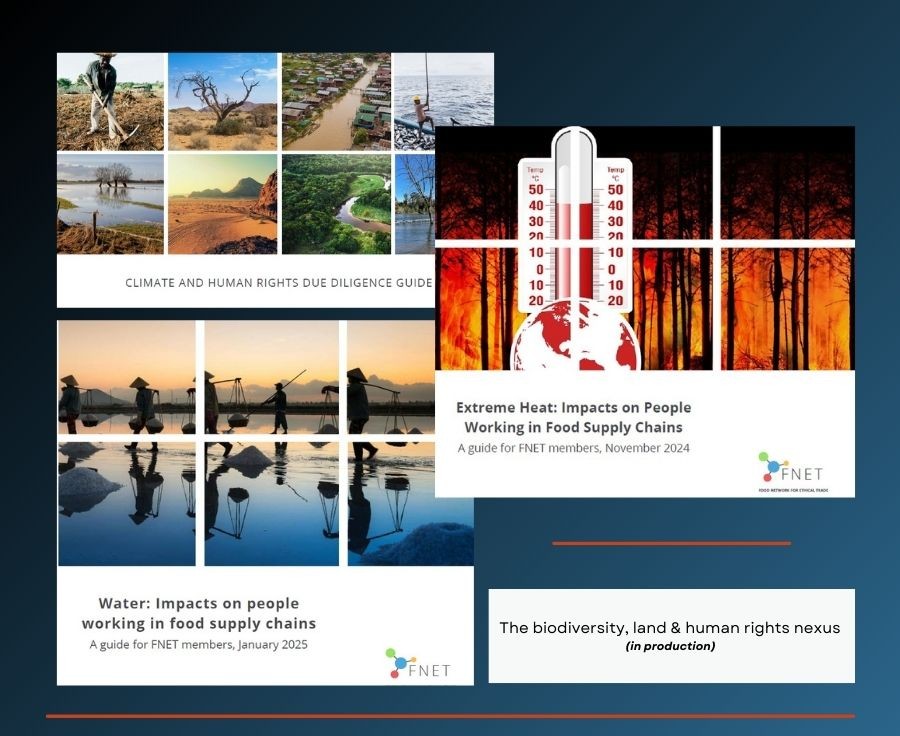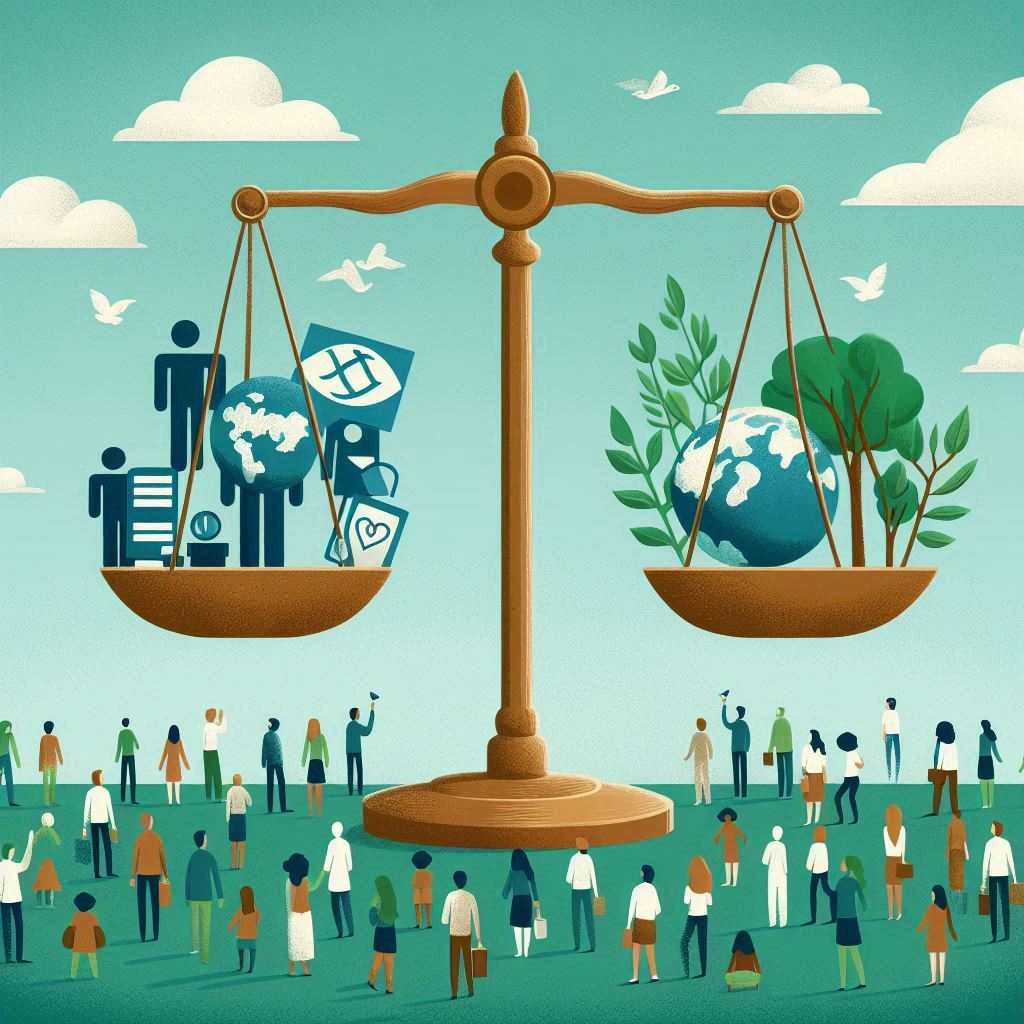
This insight is a reflection on my personal learning from completing a body of work with the Food Network for Ethical Trade (FNET) developing guidance on all thing’s climate change for agricultural supply chains. Bringing to life the first guide (drafted by another) on the HRDD approach to climate change with writing case studies and reviewing the guide through a practical lens was the starting point.
This followed with developing three additional complementary guides on Impacts on people working in agriculture covering extreme heat, water and then biodiversity and the land nexus.
Doing a Human Rights Due Diligence (HRDD) deep dive into specific climate change and environmental impacts has reinforced the urgent need for:
- A Just Transition approach to dealing with the people side of dealing with climate change,
- Strongly advocating for worker indicators in the various environmental risk mapping tools,
- Breaking down the climate/environment and human rights silos to drive change through diverse and authentic partnerships,
- All parts of this work has shown me the urgent need for robust collective action by Companies, Governments, Rights holders and other stakeholders,
- And ….. key for me is how do we level the playing field to bring the workforce into these discussions?

Using leverage & influence
In HRDD terms, using business influence and leverage with the ‘green’ organisations and the risk assessment tools and instruments could, I believe, bring about change – ensuring that these instruments provide equal weighting between ‘planet and people’. The Ethical Trading Initiative supply chain Transition Principles included this call for business to address the imbalance.
In view of the critical nature of climate change and environmental sustainability, it provides a perfect opportunity to pursue dialogue with suppliers & producers. As this is all a shared experience, it’s also, in my humble opinion, time to open dialogue with the workforce and develop workplace activity for both education and participation in future proofing their livelihoods.
That said, a celebratory shout out to FNET and the members in tackling this head-on, it raises the bar on knowledge sharing and potentially triggers more questions and collective action.
Alarm bells
It sounds the alarm bells that we have so much more to do on the human rights & climate nexus. Hopefully it starts discussions with the environmental community to bring impacted workers into focus. This personal learning & reflection affirms the need for a Just Transition approach to it all. We all have a stake in preserving & stewarding our natural resources and as such, we can all contribute to finding the solutions.
